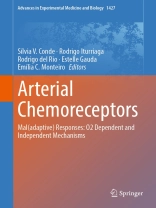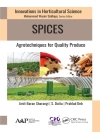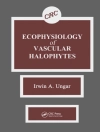The book will contain reviews and brief research articles from the participants attending the International Society for Arterial Chemoreception (ISAC) meeting, to be held in Lisbon in Portugal in June/July 2020. Since ISAC was first established, almost 70 years ago, many advances in the classical field of arterial O2, CO2 and p H sensing have been achieved but the most impressive ones are probably related to the non-canonical roles of the carotid body, as its involvement in sympatho-mediated diseases. Over the recent years, the carotid body field has gained attention with the findings that carotid body dysfunction is associated with the development/maintenance of highly prevalent diseases from cardio-metabolic diseases to asthma. Knowing that most of the patients with these pathologies lack long-term disease control, it is imperative to define new pathophysiological mechanisms aiming to find new therapeutic targets for treatment and prevention. This book will cover a broad range of topics related, not only with the fundamental knowledge of the mechanisms related with the chemical sensing in the carotid body, but also with the adaptive and mal-adaptive responses of arterial chemoreceptors to O2-dependent and O2-independent mechanisms, namely with their impact on respiratory, cardiovascular, and metabolic homeostasis in healthy and disease conditions. This volume will be required text for all the researchers in the field of arterial chemoreceptors and will provide a valuable reference source for years to come.
Tabella dei contenuti
Preface.- Chapter 1. Transcriptomics of the carotid body (Audrys G. Pauza, David Murphy and Julian F. R. Paton).- Chapter 2. The adult carotid body: a germinal niche at the service of physiology (Ricardo Pardal).- Chapter 3. Evidences that sympathetic overactivity and neurogenic hypertension correlate with changes in the respiratory pattern in rodent models of experimental hypoxia (Benedito H. Machado).- Chapter 4. Control of arterial hypertension by the Ah R blocker CH-223191: a chronopharmacological study in chronic intermittent hypoxia conditions (António B. Pimpão, Cátia Sousa, Maria J. Correia, Nuno R. Coelho, Emília Monteiro, António F. Melo Júnior and Sofia A. Pereira).- Chapter 5. Three days of chronic intermittent hypoxia induces β1-adrenoceptor dependent increases in left ventricular contractility (Anthony L. Marullo, Eric F. Lucking, Daniel Pender, Pardeep Dhaliwal and Ken D. O’Halloran).- Chapter 6. The beneficial effect of the blockade of stim-activated TRPC-ORAI channels on vascular remodeling and pulmonary hypertension inducedby intermittent hypoxia is independent of oxidative stress (Rodrigo Iturriaga and Sebastián Castillo-Galán).- Chapter 7. Intermittent hypoxia and weight loss: insights into etiology of the sleep apnea phenotype (Marianne Gagnon, Stéphanie Fournier, François Marcouiller, Loralie Guay, Vincent Joseph, Natalie J Michael and Richard Kinkead).- Chapter 8. Effects of gestational intermittent hypoxia on placental morphology andfetal development in a murine model of sleep apnea (Esther Valverde-Pérez, Jesús Prieto-Lloret, Elvira Gonzalez-Obeso, María I. Cabero, Maria L. Nieto, Marta I. Pablos, Ana Obeso, Angela Gomez-Niño, Rosa M. Cárdaba-García, Asunción Rocher and Elena Olea).- Chapter 9. Ventilatory effects of acute intermittent hypoxia in conscious dystrophic mice (Michael N. Maxwell, Anthony L. Marullo, Aoife D. Slyne, Eric F. Lucking and Ken D. O’Halloran).- Chapter 10. Intermittent hypoxia and diet-induced obesity on the intestinalwall morphology in a murine model of sleep apnoea (Esther Valverde-Pérez, Elena Olea, Ana Obeso, Jesús Prieto-Lloret, Asunción Rocher and Elvira Gonzalez-Obeso).- Chapter 11. Enhanced peripheral chemoreflex drive is associated with cardiorespiratory disorders in mice with coronary heart disease (Liena Bravo, Katherin V. Pereyra, Hugo S. Diaz, Mariajosé Flores, Karla G. Schwarz, Camilo Toledo, Esteban Díaz-Jara, Leticia González, Marcelo E. Andia and Rodrigo Del Rio).- Chapter 12. Role of peripheral chemoreceptors on enhanced central chemoreflex drive in non-ischemic heart failure (Katherin Pereyra, Esteban Díaz-Jara, Paulina Arias, Liena Bravo, Camilo Toledo, Karla Schwarz and Rodrigo Del Rio).- Chapter 13. Effect of carotid body denervation on systemic endothelial function in a diabetic animal model (Marlene D. Cabral, Fátima O. Martins, Inês B. Martins, Bernardete F. Melo, Joana F. Sacramento, Silvia V. Conde and Jesus Prieto-Lloret).- Chapter 14. Contribution of carotid bodies on pulmonary function during normoxia and acute hypoxia (Karla G. Schwarz, Maríajose Flores, Nicolas Voituron and Rodrigo Del Rio).- Chapter 15. Increased abdominal perimeter differently affect respiratory function in men and women (Joana F. Sacramento, Iolanda Caires, Maria P. Guarino, Maria J. Ribeiro, João C. P. Santiago, Ana T. Timóteo, Mafalda Selas, Miguel Mota-Carmo and Silvia V. Conde).- Chapter 16. Carotid body resection prevents short-term spatial memory decline in prediabetic rats without changing insulin signaling in the hippocampus and prefrontal cortex (Adriana M. Capucho, Ana Chegão, Fátima O. Martins, Bernardete F. Melo, Natália Madeira, Joana F. Sacramento, Rosalina Fonseca, Hugo Vicente Miranda and Sílvia V. Conde).- Chapter 17. Constitutive Expression of Hif2a Confers Acute O2 Sensitivity to Carotid Body Glomus Cells (Olalla Colinas, Alejandro Moreno-Domínguez, Patricia Ortega-Sáenz and José López-Barneo).- Chapter 18. Of mice and men, and plethysmography systems: does LKB1 determine the set point of carotid body chemosensitivity and the hypoxic ventilatory response? (A. Mark Evans).- Chapter 19. Analyzing angiotensin II receptor type 1 clustering in PC12 cells in response to hypoxia using direct stochastic optical reconstruction microscopy (d STORM) (Hayyaf S. Aldossary, Daniel J. Nieves, Deirdre M Kavanagh, Dylan Owen, Clare J Ray, Prem Kumar, Andrew M. Coney and Andrew P. Holmes).- Chapter 20. The Carotid Body “Tripartite Synapse”: Role of Gliotransmission (The Carotid Body “Tripartite Synapse”: Role of Gliotransmission).- Chapter 21. Necroptosis contributes to reduced carotid body-mediated chemoreflex function during aging in mice (Esteban Díaz-Jara, Karla G Schwarz, Angelica Ríos-Gallardo, Camilo Toledo, Julio A Alcayaga, Felipe A Court and Rodrigo Del Rio).- Chapter 22. Chronic metformin administration does not alter carotid sinus nerve activity in control rats (Joana F. Sacramento, Bernardete F. Melo, Jesus Prieto-Lloret and Silvia V. Conde).- Concluding remarks.
Circa l’autore
Dr. Silvia V. Conde is Professor of Pharmacology and Neuroscience and Principal Investigator at NOVA Medical School (NMS) . She graduated in Biochemistry in 2000 and has an Advanced Specialization Diploma in Physiology in 2005. As a Ph D student under supervision of Prof. C. Gonzalez in Valladolid (Spain) and Emilia Monteiro (Portugal), she tried to understand how cells and the body respond to the lack of O2, through the study of the physiology of the carotid body. She pursued her Ph D in Pharmacology from both the New University of Lisbon (Portugal) and the University of Valladolid (Spain) in 2007. Afterwards, she realized that for her the most exciting research involves trying to understand the pathophysiological alterations in the carotid body and in autonomic nervous system function that are in the genesis of cardiometabolic and respiratory Human diseases. As a PI, she developed a new line of research on the carotid body (CB) and dysmetabolism, which is based on the pioneering idea that the CB controls glucose homeostasis. She is dedicated to the characterization of pathophysiological biosignals, disease signatures and fingerprints that will allow the identification of targets for therapy, particularly bioelectronic targets, as her group recently described that high frequency electrical stimulation of carotid sinus nerve restores insulin sensitivity and glucose homeostasis in type 2 diabetes models. Her research in this field originated 2 patents, being one already licensed.
In 2009 she was awarded with the L’Oreal Medals Honor for Women in Science Portugal and since then her group won several prizes from the Portuguese Society of Diabetes and from the Pulido Valente Foundation. Silvia V. Conde lab is funded by grants from the Portuguese Funding Agency (Fundação para a Ciência e Tecnologia) and from Galvani Bioelectronics.
Dr. Rodrigo Iturriaga obtained the degree of Doctor in Physiological Sciences, at the P. Catholic University of Chile (1988) and subsequently made a postdoctoral stay in the Department of Physiology of the University of Pennsylvania, USA (1989-1992). He began his academic career as an Assistant Professor in the Department of Physiology of the Faculty of Biological Sciences of the P. Universidad Católica de Chile (1992), where he is currently Full Professor and Chairman. He teach physiology medical students and Ph D. postgraduate in of the Faculty of Biological Sciences of the P Catholic University, where he has directed the doctoral theses of 12 graduates. His area of interest is the neurobiology of arterial chemoreceptors and his participation in the physiological and pathological responses induced by intermittent hypoxia. He is the author of more than 130 ISI publications and book chapters. He received the John F. Perkins Jr. Memorial Fellowship Award, from the American Physiological Society, USA (1989), the Francis B. Parker Fellowship for postgraduate studies in Respiratory Physiology, USA(1992), the Young Scientists Reintegration Scholarship of the Andes Foundation (1992), the Ferdinando Data Foundation Incentive Award for Young Researcher in Arterial Chemoreception, of the International Society for Arterial Chemoreception (1993) and the 2008 teaching excellence award from the P. Universidad Católica de Chile. He is a member of several scientific societies including the American Physiological Society, the Society for Neuroscience, Sociedad Española de Ciencias Fisiologicas and Sociedad Chilena de Ciencias Fisiologicas.
Dr. Rodrigo Del Rio is Professor of Physiology at the Biological Sciences Faculty of the Pontificia Universidad Católica de Chile. He obtained his graduate degree in Physiology under the supervision of Dr. Rodrigo Iturriaga and then travel overseas to the United States of America, to be trained as a Postdoctoral Fellow in the area of neural control of cardiovascular and respiratory regulation at the University of Nebraska Medical Center under supervision of Dr. Harold Schultz. My current research goals are to understand the physiology and molecular signaling underpinning the alterations in the neural control of cardiovascular and respiratory function during disease conditions. Dr. Del Rio´s expertise is related to the physiology of peripheral and central chemoreceptors and their contribution to autonomic imbalance, cardiovascular malfunction and respiratory disorders in pathological states (i.e. heart failure, hypertension and sleep apnea). Dr. Del Rio has received several awards for his research including an Early Career Investigator Award from the Neural Control of Autonomic Regulation section of the American Physiology Society and the New Investigator Award from the American Physiology Society. Dr. Del Rio will be the next president of the International Society of Chemoreceptors 2022-2025.
Dr. Estelle Gauda is a Professor of Pediatrics, University of Toronto, and Senior Associate Scientist in Translational Medicine at the Sickkids Research Institute in Toronto, Ontario. She obtained her M.D. from the University of Iowa in 1982 and completed a residency in Pediatrics at St. Louis Children’s Hospital in 1985 followed by a fellowship in Neonatal-Perinatal Medicine at Rainbow Babies and Children’s Hospital, Case Western University. She is board-certified in Pediatrics and Perinatal-Neonatal Medicine. In 1988, Dr. Gauda joined the faculty at Johns Hopkins and had a successful 29 year career as a physician-scientist. In 2017, she was appointed Head to the Division of Neonatology, and awarded Women’s Auxiliary Chair of Neonatology at The Hospital for Sick Children, Toronto, Ontario. Dr. Gauda has clinical expertise in perinatal-neonatal care of the high risk newborn and a solid research portfolio investigating mechanisms that control breathing during development with a focus maturation of the carotid body. She has described how postnatal development effects the expression of different excitatory and inhibitory neurotransmitters/neuromodulators in the carotid body, and how prenatal/perinatal exposure to nicotine, hyperoxia and inflammation modifies this expression and its downstream effects on breathing and chemosensitivity to hypoxia and hypercapnia. Dr. Gauda is past president of the International Society of Chemoreceptors. 2014-2017.
Dr. Emilia Monteiro is Professor of Pharmacology at Nova Medical School, Universidade Nova de Lisboa in Portugal. She obtained her M.D. and a Ph D in respiratory physiology from the University of Navarra (Spain). Her interest about arterial chemoreceptors started in the eighties at the Gulbenkian institute of Science (Portugal) investigating the cardiorespiratory effects of purines mediated by the carotid body a study that originated a Ph D degree in Pharmacology from the Universidade do Porto (Portugal). Since then she expanded her research interests to the comorbidities associated to chronic intermittent hypoxia, particularly hypertension looking for new targets to treat this condition. In parallel she developed a therapeutic drug monitoring laboratory at Nova Medical Scholl dedicated to the clinical pharmacology of antiretroviral drugs. She was president of the Portuguese Society of Pharmacology and Dean for Education of Nova Medical School. Presently, she coordinates the thematic line “Cardio Metabolic disorders” of the Portuguese Research Unit i NOVA4health, she is Co-director of the Portugal Clinical Scholars Research Training (PTCSRT) from Harvard Medical School, member of the scientific council of the ANSM “Agence Nationale de Sécurité du Medicament et des Produits de Santé” (France), member of the National Ethics Committee for Clinical Research and Coordinator of the Pt CRIN – Portuguese Clinical Research Infrastructure network, the national network partner of the ECRIN/ERIC (European Clinical Research Infrastructure Network/ European Research Infrastructures Consortium). Dr. Monteiro is member of the Portuguese Academy of Medicine and the president of the International Society of Arterial Chemoreceptors 2018-2022.












